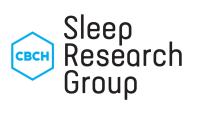Sleep Research Group

The Sleep Research Group is part of a multidisciplinary research collective called the Center for Behavioral Cardiovascular Health (CBCH). CBCH thrives by embracing a collectivist approach to sharing resources, expertise, and creativity. Our sleep research program embraces this philosophy and our work benefits from a team-science approach.
Sleep influences nearly all aspects of our being. Our goal at the CBCH Sleep Research Group is to maintain a research program that examines how sleep and circadian rhythms relate to physical, medical, emotional, cognitive, and behavioral health and disease.
Research
Sleep is a vital physiologic process and an essential health behavior that often suffers due to illness, societal/work demands, behaviors, or environmental factors. Work at the CBCH Sleep Research Group includes observational and laboratory studies conducted to examine how sleep impacts psychological and cardiovascular outcomes. We also develop and test behavioral interventions aimed at improving sleep, cardiovascular risk, and mental health.
Our research examines:
- How sleep and 24-hour activity rhythms relate to cardiovascular, metabolic, psychological, and cognitive health
- How sleep and psychosocial factors interact to potentially confer cardiovascular risk
- How work-related factors (e.g., circadian misalignment due to shift work) and stressors impact sleep, behavior, cardiovascular and mental health
- How circadian-based behavioral interventions (e.g., targeted light exposure) can be applied to improve sleep and mood
- How climate change impacts sleep
Projects
IMPROVE I Study
R01 HL146911 (Chang / Shechter MPI) – NIH / National Heart, Lung and Blood Institute
The Identification of Modifiable Emergency Department and Sleep Factors Contributing to Psychological and Cardiovascular Risk in Clinicians
The goal of this study is to test whether sleep duration, circadian disturbance, and other modifiable emergency department factors (e.g., crowding, staffing levels, patient acuity) are associated with increased risk for burnout, psychological distress, and elevated blood pressure in a 3-year longitudinal study of emergency department clinician and staff.
IMPROVE II Study
R01 HL157341 (Shechter / Chang MPI) - NIH/National Heart, Lung and Blood Institute
Psychological Symptoms in Healthcare Workers Following the COVID-19 Pandemic and Relationship to Long-Term Cardiovascular Risk
The goal of this project is to examine the prevalence and predictors of sustained psychological symptoms (insomnia, posttraumatic stress disorder) in emergency department healthcare workers who provided care during the COVID-19 pandemic. We characterize the relationship of psychological symptoms to 3-year progression of atherosclerotic cardiovascular disease risk and examine a potential protective factor (i.e., resilient coping) in the development of COVID-related psychological symptoms.
Light Patterns and Sleep
R01HL146911-03S1 (Shechter / Chang MPI) - NIH / National Heart, Lung and Blood Institute
Daily Personal Light Exposure Patterns and Sleep in Emergency Department Healthcare Workers; Administrarive Supplement to: Identification of Modifiable Emergency Department and Sleep Factors Contributing to Psychological and Cardiovascular Risk in Clinicians
The goal of this project is to examine the relationship between personal light exposure patterns and sleep duration and quality under real-life conditions. Light exposure patterns are tracked via a wearable light sensing pin (spectrophotometer) while sleep is assessed via wrist-worn accelerometry for a 2-week period in emergency department clinicians.
Nocturnal Hypertension and Sleep
K23HL141682 (Abdalla, PI) - NIH/ National Heart, Lung and Blood Institute
The overall objective of the study is to determine whether extending sleep duration can decrease blood pressure during sleep among individuals with short sleep duration.
SleepWell Study
P30 AG064198 (Kronish, PI) - NIH/National Institute on Aging
A Pilot Chronotherapeutic Intervention To Improve Sleep Following Acute Coronary (Shechter, Sub-Study Pi)
The Roybal Center applies the experimental medicine approach to behavioral intervention development for interventions targeting health behaviors in survivors of life-threatening medical events. The sub-project is a circadian-rhythm focused intervention consisting of targeted light exposure (more bright light and evening light avoidance) to improve sleep in individuals who have experienced acute coronary syndrome and have sleep disturbances. The intervention’s impact on psychological distress is also assessed as a secondary outcome.
Stroke-Sleep Study
R01 HL141494 (Shechter, PI) - NIH/ National Heart, Lung and Blood Institute
Poor Sleep, Sedentary Behavior, and Secondary Cardiovascular Risk in Stroke and Tia Patients
The goal of this project is to examine whether objectively-estimated sleep duration and sedentary behavior (via wrist-mounted accelerometry) are associated with risk of 1-year recurrent events or early death in stroke survivors. This is a comprehensive and objective assessment of the overall 24-h behavioral activity profile in patients for 30 days post-hospitalization to evaluate the independent and joint contributions of poor sleep and sedentary behavior as prognostic risk factors for recurring events or early death after a cerebrovascular event.
The Association of Sleep Architecture with Blood Pressure Dipping
18AMFDP34380732 (Abdalla, PI) American Heart Association and Robert Wood Johnson/Harold Amos Medical Faculty Development Program
The overall goal of the proposed study is to examine the association between poor sleep architecture and reduced BP dipping, and whether this association is partially explained by autonomic dysregulation.
Our Team
Resources
Collaborators
Our work at the Sleep Research Group is informed by and conducted in collaboration with other investigators at CBCH and the greater Columbia University Irving Medical Center community.
- Ian M Kronish, MD
Cardiovascular Behavioral Medicine and Applied Hypertension Research - Keith Diaz, PhD
Physical Activity and Exercise Physiology - Jeffrey Birk, PhD, MS
Emotion Regulation and Affective Science - Marie-Pierre St-Onge, PhD
Nutrition and metabolism - Priya Palta, PhD, MHS
Aging, Dementia and Cognitive Decline - Nour Makarem, PhD
Cardiovascular epidemiology - CBCH Im-Sci Lab
Implementation science - SOBC Resource and Coordinating Center
- The Science of Behavioral Change
- Talea Cornelius, PhD, MSW
Dyadic analysis - Allison Andreno Norful, PhD, MPhil, MSN, BSN, ANP-BC
Nursing Science - Bernard P. Chang, MD, PhD
Emergency Medicine - Sachin Agarwal, MD, MPH
Neurology - Kelton Minor
Climate Science
Publications
For a complete list of publications, please visit Google Scholar.
Sleep Educational Videos
The CBCH Sleep Research Group loves sharing. Please find links below for videos on sleep basics and sleep hygiene. Feel free to use and share (but kindly credit CBCH Sleep Research Group).
Contact Us
For questions or more information about the CBCH Sleep Research Group, please contact:
Ari Shechter, PhD
as4874@cumc.columbia.edu

